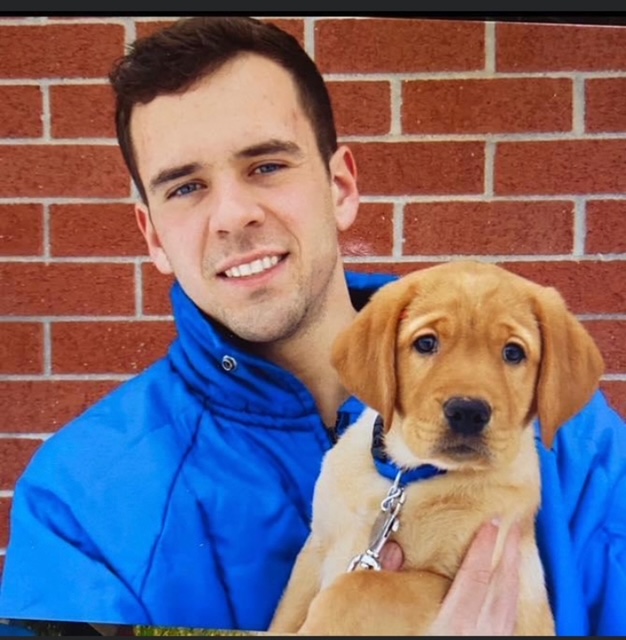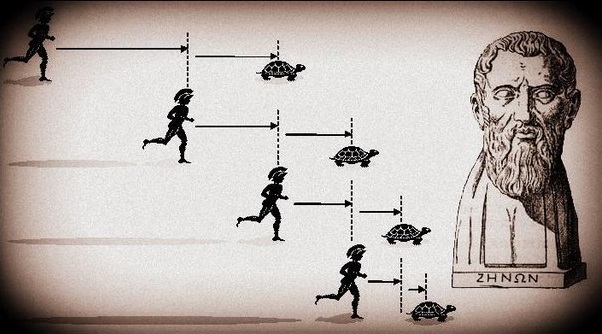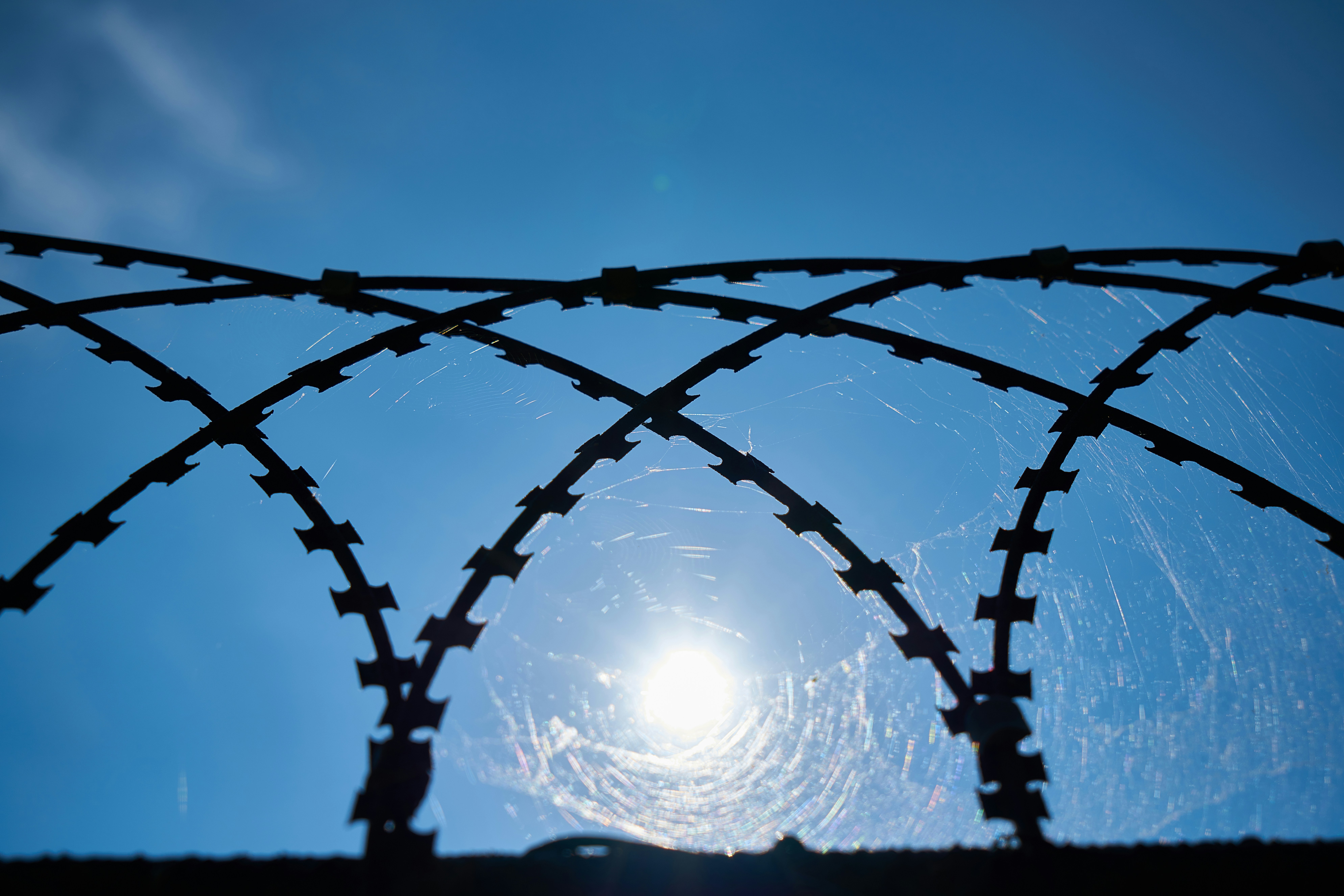The Prison to PhD Pipeline: Why?
Travis Cunningham is a researcher in mathematical physics, in the subfield of scattering resonances.

There are certainly people here who fit every single stereotype for the violent convict. But the truth is that many of the people I've met in my 10 years in prison are kind, have interests and loved ones. Most importantly, they recognize the mistakes in their pasts and crave the chance at a new life. If given the opportunity, if shown a modicum of compassion, they would embrace it genuinely and with gratitude. But this broken system is one of punishment first, and there are very few resources that facilitate any kind of change, even when the will to change is there.
When I first came to prison and decided I wanted to embrace sobriety, there were no substance abuse programs available to me. That's just wrong. I was struck by the fact that nothing in the system was designed to help us change. I feel lucky that noticing this pattern early in my sentence, rather than discourage me, was highly motivating. It ignited a rebellious flame in me that burns stronger every day. Every time I opened a textbook or read a research paper, every day I stayed clean, every time I showed compassion to the people around me, I was fighting a system that wanted me to fail.
I haven't even gotten to the best part of my mathematical journey, which is meeting the many wonderful people who, with unflinching kindness, respect, and acceptance, would catapult my love of mathematics to new heights. They have transformed my sense of motivation within mathematics from the impetus of pain and rebellion into an aspiration to be more like them. These people are established researchers at the top of their fields still making time for someone like me and volunteers happily offering their hand to help facilitate my mathematical studies and research.
I consider this transition and the relationships I've been fortunate to have with so many great people to be the most important part of my story. I attribute the real happiness and optimism I have today, one that couldn't have come from finding my passion for mathematics alone, to the inspiring connections I've made with people, and to being shown compassion despite my mistakes. Trust me, there will be much more to say on this in future posts.
The reality is that for years the answer to my "Why?" was very somber. As my momentum built within mathematics (and life, as I put other pieces of me back in place), the goal became clearer and clearer: I wanted to produce research in mathematical physics. I knew this was a gargantuan endeavor, especially with me being in prison. Most days my objective seemed like a bizarre mix of impossibility and fate. But whatever it was, I never hesitated. I had to go after it.
But having a goal and actually putting in the work, discipline, and perseverance to carry it out are two different things. Studying the calculus textbook, I knew I could understand it. Yet to really grasp more complicated concepts as I moved on to linear algebra, differential equations, real and complex analysis... these took much more time and effort. I admit there were days when I would stare at a concept like continuity in a metric space and think, “this will never make sense to me.” But as I worked, I reflected. I began and ended every study session with meditation. I paid attention to what was working and what wasn't. I paid attention to fluctuations in my motivation, as doubt and discouragement tried to creep in daily. And I noticed that my best study sessions, the days I understood concepts with the most ease, were the days I was hurting the most.
The pain I felt was not even primarily my own. I didn't feel bad for myself. It was the opposite. I was angry, I couldn't bear what I had done. I couldn't stomach the pain I knew other people, including my family, were feeling because of my actions—a pain I knew I couldn't even fathom despite all I was going through. It made me sick, literally. I had never stopped to think about how my personal issues affected the world around me until it was too late... until I found myself waking up every day in a prison cell with a trail of destruction behind me that I couldn't fix. I would do anything to take away the pain I caused, if I could.
But even worse than the pain I felt was the spiral that sometimes followed it: "Just give up... It's over..." These thoughts were unacceptable. I did not want to keep feeling that way, so the only option was to face the pain, to face the problems that caused it, and to change. Studying math certainly played a role in how I walked away from resignation and withdrawal. This was the first time I had actually used logic to analyze a situation and figure out a path forward, a principle I've since applied over and over again. Laying down and quitting would accomplish nothing. It would be yet another act of disrespect to myself and to the world. But facing my issues head-on, putting in the work to change... that was the right thing to do, as well as the logical one. And I started to hope that maybe someday I could put something positive into the world for a change.
In the darkest moment of my life, in that desperate early-morning meditation, my pain led me to mathematics. Math then showed me that embracing pain can facilitate growth. I learned how not to run from the pain, but also to not let it consume me, both as a way to enhance my studies and as a guide on the path to change. Instead, I embraced the pain and welcomed it. I would meditate intensely on my most serious issues, then fight the urge to run. I'd just be with those monsters for a time, sitting with them face-to-face, feeling them, listening to what they had to say. When the turbulence grew and it all started feeling too much, I would bottle it and channel it into my studies and into the work I was doing on myself. Every bit of that pain came from things I needed to change, so I approached my work, both mathematical and personal, with the sort of desperation required for survival.
I repeated this dance—pain, mathematics, growth, pain, mathematics, growth—for years. I stayed clean. I rebuilt relationships with my family. I remained focused on my goals and defended myself against my environment. I started tutoring other inmates working on their GED. I joined a program raising puppies to be guide dogs for the blind. I studied and learned a good deal of mathematics. In increments and then in leaps, I was becoming someone I could face every day in the mirror. There is no making up for my past. But math has always given me the hope for a brighter future, one in which I give back to the world through research and teaching, spreading the beauty and life-changing power of mathematics. Over time, that goal started to seem more and more possible.



